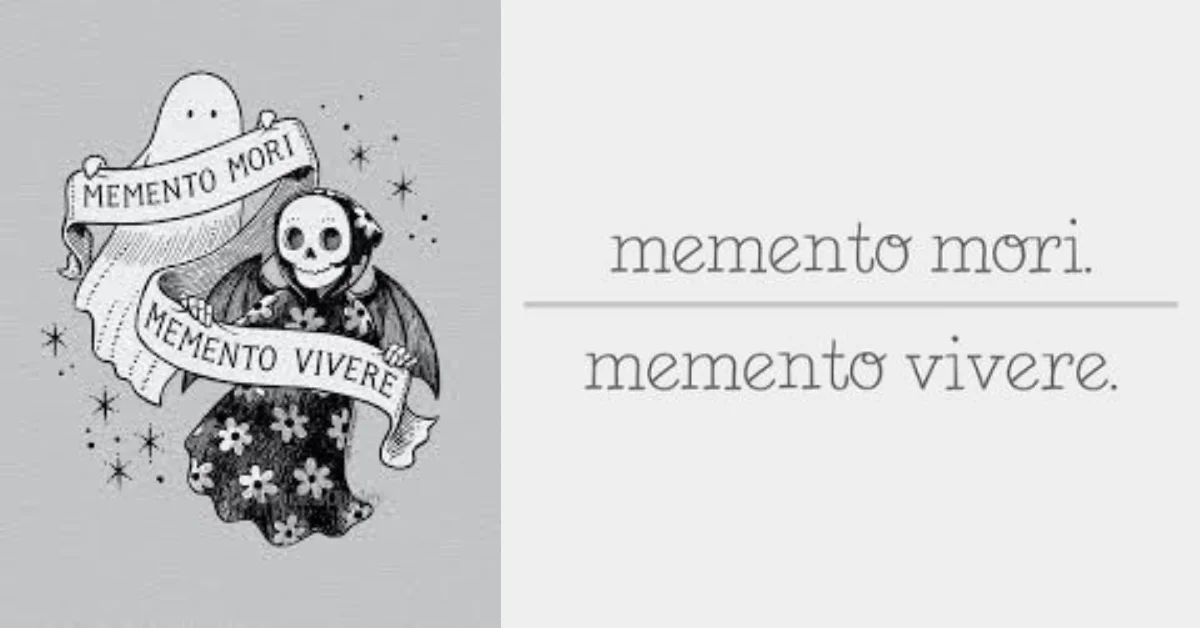Introduction to Memento Mori Memento Vivere
Life is a delicate dance between existence and impermanence. The phrase “Memento Mori Memento Vivere” beautifully encapsulates this duality, reminding us to remember death while also embracing life. It’s an ancient concept that invites us to reflect on our mortality, urging us to appreciate every moment we have. In a world filled with distractions and the hustle of everyday life, how often do we pause to consider what truly matters? By acknowledging the inevitability of death, we open ourselves up to experience life more fully—each breath becomes richer, every connection deeper.
As we delve into the origins and significance of this philosophy, you may discover powerful insights that can transform your perspective. This journey through thought-provoking practices will not only inspire you but could be the catalyst for meaningful change in how you live each day. Join me as we explore memento mori memento vivere—a reminder that both death and life are essential threads in the tapestry of our human experience.
ALSO READ: Prayer for Healing and Strength: Trust in God’s Power
The History and Meaning behind the Concept
Memento mori, a Latin phrase meaning “remember you must die,” has roots in ancient philosophy. It serves as a reminder of mortality and the inevitability of death. This concept gained prominence during the Middle Ages, particularly within Christian teachings.
Artwork from this era often featured skulls and hourglasses, symbolizing life’s fleeting nature. The juxtaposition of life and death urged individuals to reflect on their existence.
In contrast, memento vivere—meaning “remember to live”—emerged alongside it. This adds an encouraging layer to the notion, emphasizing that acknowledging death can enhance our appreciation for life itself.
Together, these phrases create a balanced perspective on human experience. They push us toward mindfulness and intentional living while accepting our mortality as part of the journey. Embracing both aspects encourages deeper connections with ourselves and others.
Why Embracing Death Can Help Us Live a Fuller Life?
Embracing death can seem daunting, yet it holds the key to living life more fully. When we acknowledge our mortality, everyday moments become precious. The mundane transforms into something beautiful.
This perspective encourages us to prioritize what truly matters. Relationships take center stage when we realize time is finite. We start valuing connections and experiences over material possessions.
Fear of death often leads to avoidance, but facing this reality fosters courage. It pushes us out of our comfort zones and inspires action. Suddenly, passions are pursued with vigor and dreams feel attainable.
In recognizing life’s fragility, gratitude flourishes within us. Each breath carries significance; every laugh resonates deeply. Embracing death empowers us to live authentically without hesitation or regret—drawing closer to our true selves in the process.
Practices and Rituals for Cultivating a Memento Mori Mindset
One effective way to cultivate a memento mori mindset is through daily reflection. Set aside a few moments each day to contemplate your mortality. This practice helps you prioritize what truly matters.
Creating visual reminders can be impactful as well. Consider placing skull motifs or art that depicts the transience of life around your space. These subtle prompts encourage deeper thoughts about existence and purpose.
Engaging in gratitude rituals also enhances this mindset. Write down three things you’re grateful for each morning, reminding yourself of life’s fleeting beauty.
Another powerful practice involves storytelling—sharing tales of loved ones who have passed away can help keep their memories alive while fostering an appreciation for the present moment.
Incorporate mindfulness exercises into your routine too, allowing awareness of both life and death to permeate your daily experiences. Embrace the duality; it enriches every facet of living fully.
Personal Stories and Testimonials from Those Who Have Adopted this Philosophy
Many who embrace the philosophy of memento mori memento vivere find profound transformation in their lives. Sarah, a mother of two, shared how contemplating mortality shifted her perspective. “I used to stress about trivial things,” she said. “Now, I focus on what truly matters—time with my family.”
For James, a former corporate executive, this mindset sparked creativity he never knew he had. “After facing health issues, I realized life is too short for unfulfilled dreams,” he explained. He began painting again and now exhibits his work.
Then there’s Maria, who lost her partner unexpectedly. Instead of succumbing to despair, she found strength in remembering both love and loss as part of her journey. “Memento mori reminds me to cherish every moment,” she reflected.
These stories illustrate that embracing the reality of death can lead to vibrant living filled with purpose and connection.
Criticisms of Memento Mori and How to Address Them
Critics often argue that the memento mori philosophy can lead to nihilism. They worry it might encourage a defeatist mindset, making life seem pointless. However, this interpretation misses the essence of embracing mortality.
Instead of fostering despair, acknowledging death can foster urgency and appreciation for life. It’s about finding meaning in every moment rather than succumbing to hopelessness.
Another concern is that focusing on death may invoke anxiety or fear. Yet, cultivating a memento mori perspective doesn’t have to be grim. Many find peace in recognizing impermanence—it creates space for joy and gratitude.
Addressing these criticisms involves reframing how we perceive death itself. Emphasizing balance between living fully today while understanding our finite existence allows individuals to thrive without feeling overwhelmed by darkness.
Conclusion: Finding Balance in Life by Acknowledging Death
Finding a balance in life often feels like an elusive quest. The duality of memento mori and memento vivere invites us to navigate this delicate space between acknowledging mortality and celebrating existence. By embracing both concepts, we gain a deeper understanding of what it means to live fully.
When we recognize that life is fleeting, we are compelled to cherish every moment more profoundly. This awareness encourages meaningful connections with loved ones and prompts us to pursue passions that resonate deeply within us.
The practice of accepting death can be liberating rather than frightening. It allows for an appreciation of the present while fostering personal growth and resilience against life’s challenges.
As individuals adopt the philosophy behind memento mori memento vivere, they may discover new perspectives on their purpose and priorities. Amidst the chaos of daily life, cultivating this mindset serves as a gentle reminder: life is precious, even when intertwined with the inevitability of death.
By finding harmony between these two powerful ideas, one can approach each day with gratitude—a willingness to embrace both sorrow and joy—and ultimately nurture a richer experience in our shared human journey.
ALSO READ: Love Poems for Her: Deeply From the Heart
FAQs
What is “Memento Mori Memento Vivere”?
“Memento Mori Memento Vivere” is a Latin phrase that translates to “remember you must die, remember to live.” It serves as a reminder to embrace both the inevitability of death and the importance of living fully, encouraging mindfulness and appreciation for life’s fleeting moments.
Why should we embrace death to live a fuller life?
Acknowledging death helps us prioritize what truly matters, foster meaningful relationships, and pursue our passions. It transforms ordinary moments into something precious, urging us to live authentically and without regret.
What are some practices to cultivate a Memento Mori mindset?
Practices include daily reflections on mortality, using visual reminders like skull motifs, engaging in gratitude rituals, and incorporating mindfulness exercises. These practices promote a deeper appreciation of life’s impermanence and enrich everyday experiences.
How can Memento Mori philosophy impact personal growth?
Embracing the awareness of death can spur creativity, foster courage, and help people live with more purpose. It motivates individuals to focus on what’s important and pursue their true passions, leading to a more fulfilling life.
Can the Memento Mori mindset lead to nihilism?
While some worry it may encourage nihilism, the true essence of Memento Mori is to inspire urgency and meaning in life. Rather than leading to despair, it promotes a balanced view of life, embracing both its challenges and beauty with gratitude.











